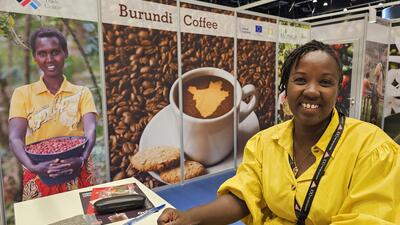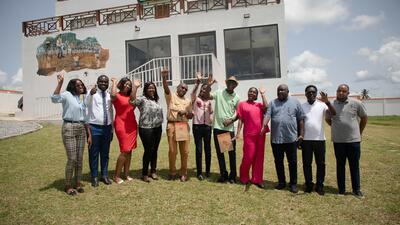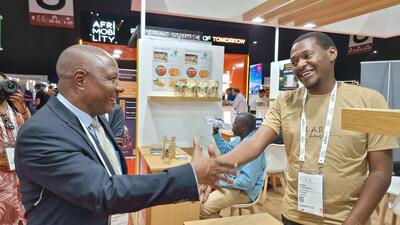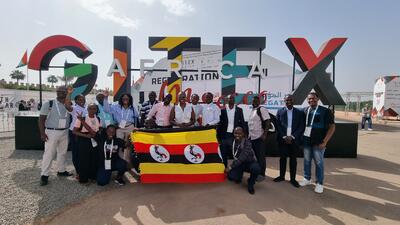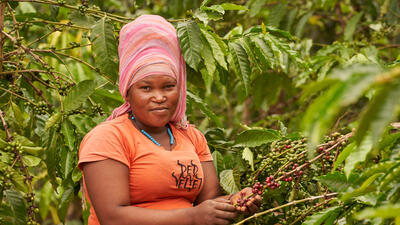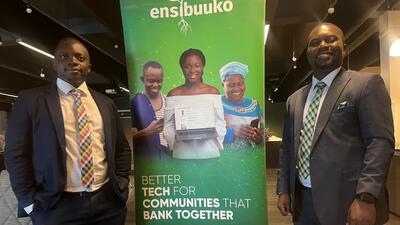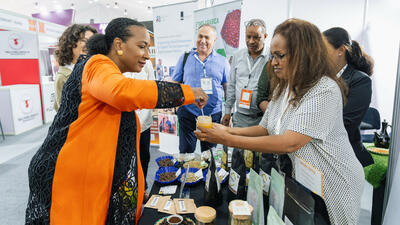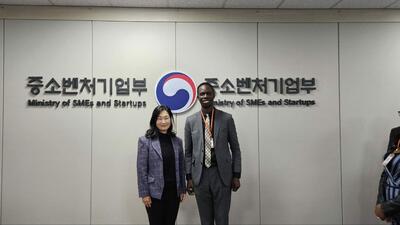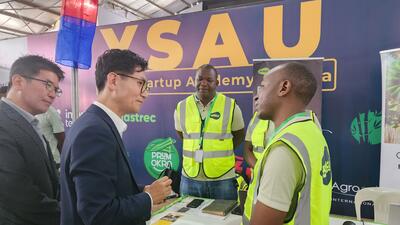


UN agencies join forces in East Africa for small businesses, women and youth
Actors in the East African business ecosystem stressed the need to include small business owners in AfCFTA negotiations on the Protocol for Women and Youth
The International Trade Centre, the United Nations Development Programme (UNDP) and UN Women, collaborate with the East African Business Council to engage business support organizations in the region on the African Continental Free Trade Area (AfCFTA).
Held from 20 to 22 September 2022, the workshop saw over 70 representatives from the region who learned about the AfCFTA and its implementation progress.
The workshop also provided business support organizations with a comprehensive toolkit to tailor their services to small businesses and drive business competitiveness under a new liberalized African market. Small businesses, especially women and youth entrepreneurs, will benefit once Africa’s institutions in the business ecosystem are strengthened to respond to their emerging needs and advocate for their interests.
Businesses from other regions attending the workshop had the opportunity to network with counterparts from East Africa and displaying their products at the event. Also in attendance were representatives from the AfCFTA Secretariat, the Federation of West African Chambers of Commerce and Industry, the United Nations Conference on Trade and Development as well as the United Nations Economic Commission for Africa.
Speaking at the opening session, ITC’s Director Country of Programmes, Ashish Shah said, “Women and youth are Africa's greatest resource”. He emphasized that the COVID-19 pandemic had cemented the benefits of regional integration including in the East Africa Community. Ashish argued that, “the AfCFTA is the silver bullet into the future. One Trade Africa, ITC’s corporate programme to promote regional integration on the continent, is steadfast to unlock $22 billion in intra-African export potential and empower MSMEs, women and youth to access meaningful business opportunities under the AfCFTA.” He concluded by underscoring the importance of joint purpose and putting minds together as partners for the betterment of Africa.
Elsie Attafuah, UNDP Uganda Resident Representative underscored the need to build the capacity of women and youth-led enterprises to trade in African goods and services - produced in Africa, by Africans, for Africans. “Women and youth engaged in cross-border trade continue to face challenges and obstacles that limit their competitiveness and make their businesses less productive,” said Attafuah. The UNDP Resident Representative emphasized the need to understand the priorities of women and youth and equip them with knowledge, skills, and information, as this was incredibly important to empower them to participate in intra-African trade.
Adekemi Ndieli, the UN Women Deputy Country Representative said, “we need to demystify the legal and policy context for women and youth. Sub-Saharan Africa and particularly Uganda has the highest number of women entrepreneurs in the world.” Ndieli further called for more inclusive participation of women and youth in policy negotiations, ease of access to finance, uptake of information technology for women traders, and deliberate actions such as capacity building for small businesses on international and regional trade requirements, as well as the empowerment of women-owned firms to invest in trade opportunities under the AfCFTA.
Speaking at the event, the Executive Director of the East African Business Council John Kalisa highlighted the need to improve the calibre of East African businesses in preparation for greater competition brought about by the AfCFTA and to boost productivity in the region. Kalisa indicated that the AfCFTA will not work if we ignore the role of women and youth and called for the finalization of the AfCFTA protocol on women and youth. Kalisa indicated information asymmetry, enforcement of contracts, expensive capital, and foreign exchange losses are among the challenges facing women and youth engaged in cross-border trade in the EAC block and Africa.
As the first collaboration between the three UN Agencies to engage regional and national stakeholders on the continental trade area, the Kampala workshop kicks off a series of joint trainings expected to support micro, small and medium-sized enterprises in taking advantage of the AfCFTA.





